Can IGCR and EPCG Be Availed Together

Importers often wonder whether they can benefit from both the IGCR (Import of Goods at Concessional Rate) and EPCG (Export Promotion Capital Goods) schemes simultaneously. While both offer customs duty concessions, they operate under different frameworks and serve distinct purposes. Their combined use is possible only under specific conditions. 1. Understanding the Two Schemes 2. […]
IGCR vs Project Import – What Should You Choose?
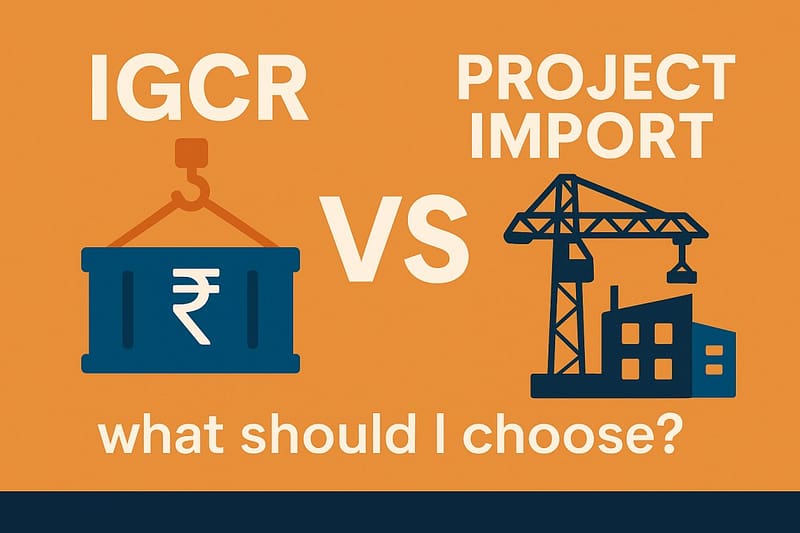
IntroductionBusinesses involved in import-dependent manufacturing or large industrial setups often evaluate two duty-saving options: IGCR (Import of Goods at Concessional Rate) and the Project Import Scheme. Both offer concessional customs duty, but they serve completely different purposes. 1. What Is IGCR? 2. What Is Project Import? 3. Which One Should You Choose? ConclusionIGCR supports day-to-day […]
IGCR vs Advance Authorisation: Which Is Better for Your Business?
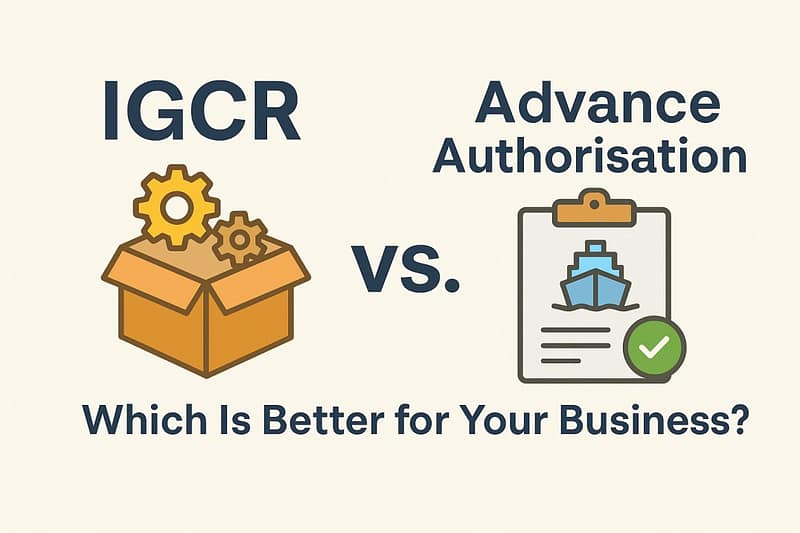
For export-oriented businesses, choosing the right import incentive can significantly impact cost efficiency and cash flow. Two commonly used schemes are IGCR (Import of Goods at Concessional Rate) and Advance Authorisation (AA). Both allow duty-free or concessional imports, but they differ in process, flexibility, and obligations. IGCR enables businesses to import raw materials, components, or […]
IGCR vs EPCG Scheme: Key Differences Explained
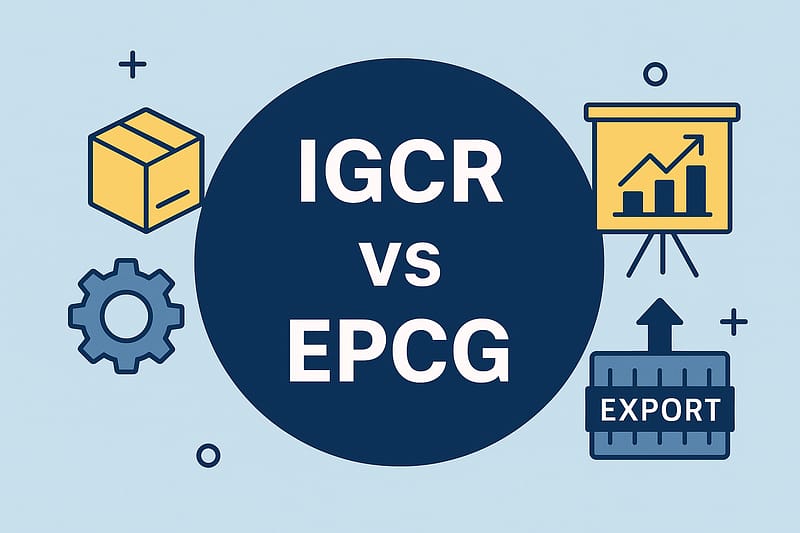
Introduction:India provides export-oriented businesses with schemes to reduce costs and enhance competitiveness. Two widely used schemes are IGCR (Import of Goods at Concessional Rate) and EPCG (Export Promotion Capital Goods). While both offer duty concessions, their focus and obligations differ. 1. IGCR (Import of Goods at Concessional Rate): 2. EPCG (Export Promotion Capital Goods): 3. […]
How to Close an IGCR Bond Once Imports Are Completed
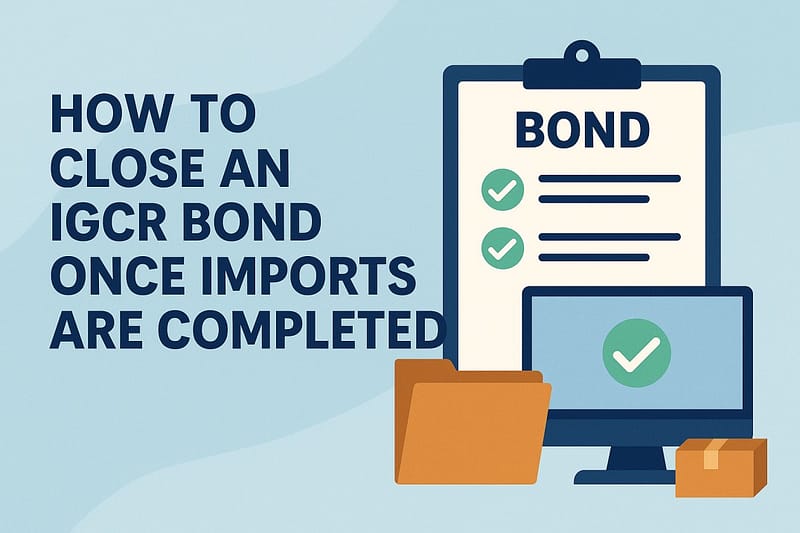
Once all your imports under the Import of Goods at Concessional Rate of Duty (IGCR) Rules, 2022) are completed, you must formally close your IGCR bond. The bond, or bank guarantee, is a legal commitment ensuring that the imported goods are used for the declared purpose. Closing it not only releases your financial security but […]
How to Modify Your IGCR Registration if Your Business Changes

Businesses often evolve — new addresses, manufacturing units, or job-workers are common. When such changes occur, it’s essential to update your IGCR registration under the Import of Goods at Concessional Rate of Duty (IGCR) Rules, 2022. Since the concessional duty benefit is tied to specific end-use and location, keeping your registration updated ensures smooth compliance […]
Is IGCR Faster than EPCG or Advance Authorisation?
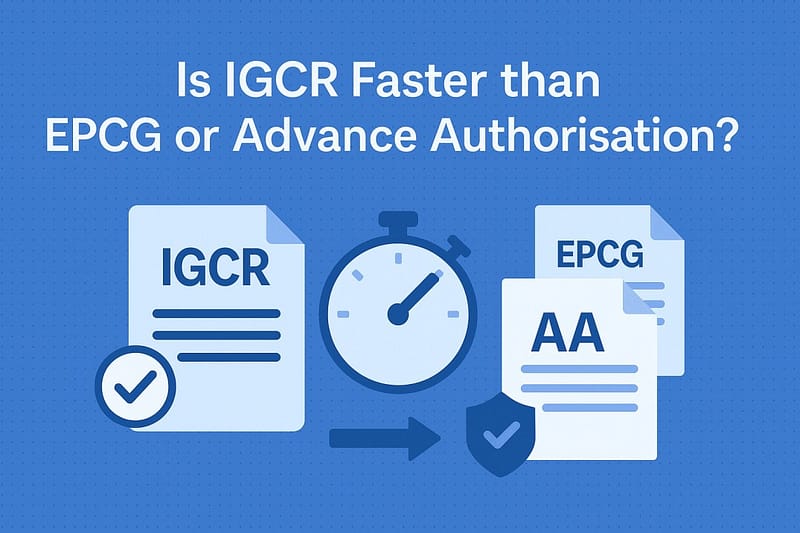
When importing goods at reduced or zero customs duty, Indian businesses can choose between three major schemes — IGCR, Advance Authorisation, and EPCG. Each serves a different purpose, but they vary significantly in terms of speed and compliance requirements. The Import of Goods at Concessional Rate of Duty (IGCR) scheme allows importers to bring in […]
How Do I Calculate Duty Saved Under IGCR?
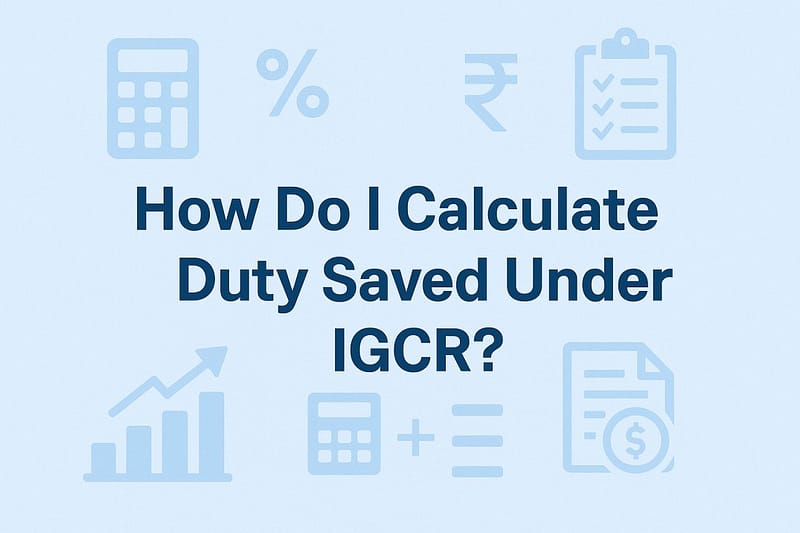
When you import goods under the IGCR (Import of Goods at Concessional Rate of Duty) Rules, 2017, you pay a reduced or zero customs duty. The “duty saved” is simply the difference between the normal duty payable and the concessional duty actually paid. Here’s how to calculate it step by step: Step 1: Determine the […]
Understanding the Validity of a Customs Bond Under IGCR
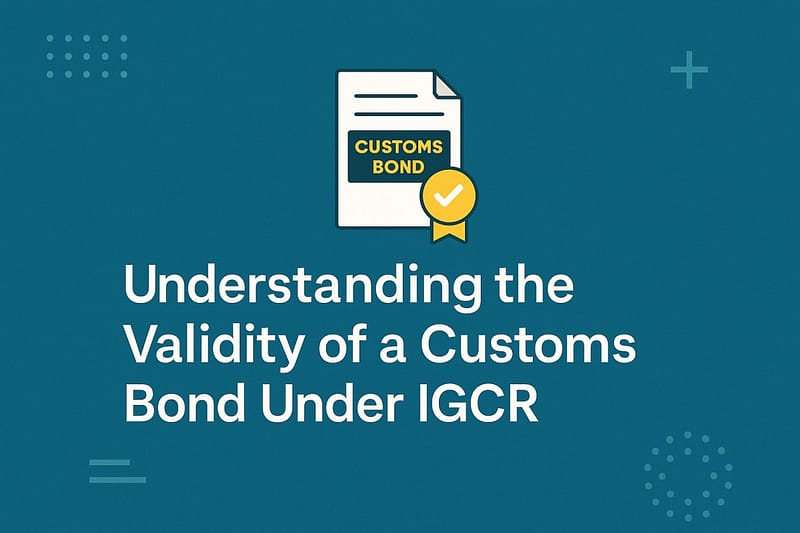
When businesses import goods under the Import of Goods at Concessional Rate (IGCR) Rules, they are required to submit a customs bond. This bond serves as a financial guarantee to the customs authorities that the importer will properly use the goods for the declared purpose and comply with all post-import conditions. However, many importers are […]
What is the minimum security requirement under IGCR?
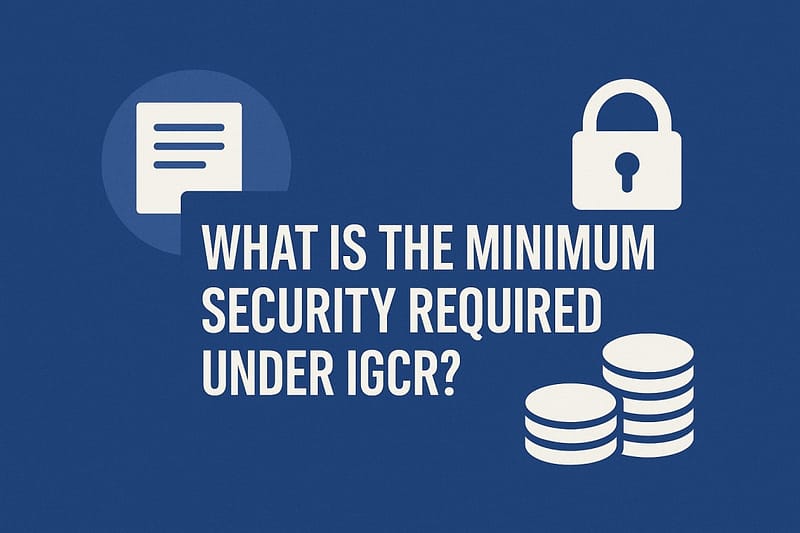
Under the Import of Goods at Concessional Rate of Duty (IGCR) Rules, importers are required to furnish a security to the Customs authorities to ensure compliance with the conditions of the exemption. 🔹 What is the Minimum Security? There is no fixed amount prescribed as “minimum security” in the IGCR Rules. Instead, the security amount […]
